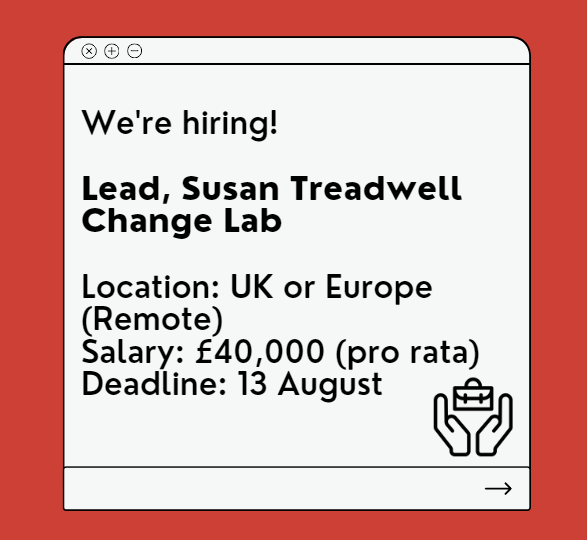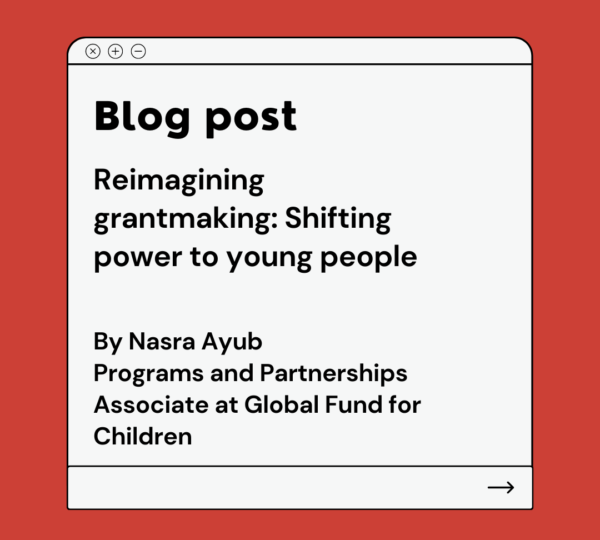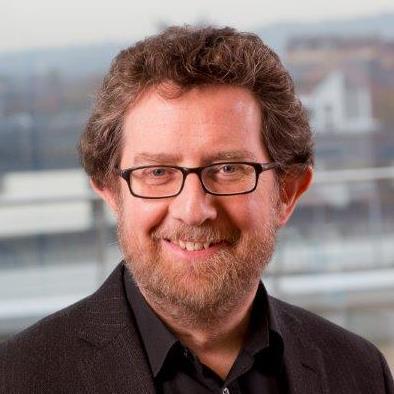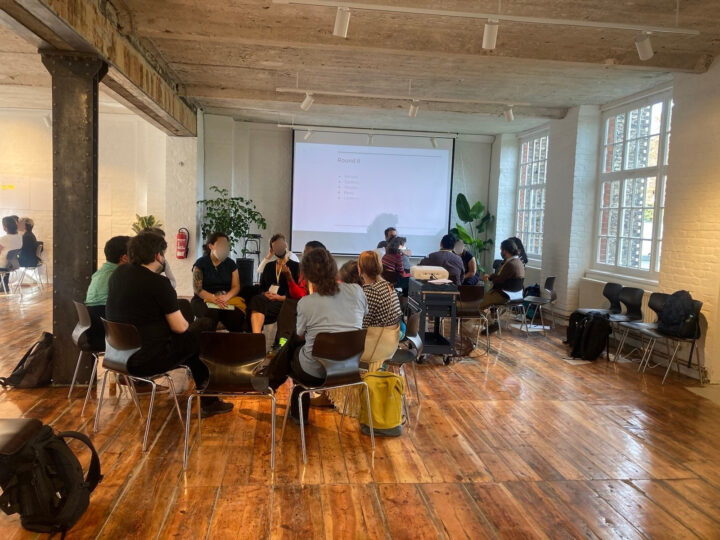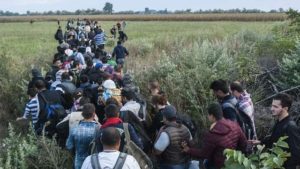 In this blog, Marie Heřmanová and Robert Basch from Open Society Foundations Prague situate the Czech Republic’s response to the refugee crisis in the wider context of the emerging trends of the Visegrad countries. In it they outline the attitudes of the government, general public and civil society, and identify gaps which could be filled by human rights and social change funders.
In this blog, Marie Heřmanová and Robert Basch from Open Society Foundations Prague situate the Czech Republic’s response to the refugee crisis in the wider context of the emerging trends of the Visegrad countries. In it they outline the attitudes of the government, general public and civil society, and identify gaps which could be filled by human rights and social change funders.
The response of the Visegrad countries to the refugee crisis is an ongoing topic of discussion, and the re-born Visegrad identity, based on a rejection of and lack of will to cooperate, is an important subject of analysis. Hungarian anti-refugee politics is only the infamous peak of a substantial iceberg, and whilst the Czech Republic is rarely mentioned, the government expresses strong anti-immigration discourse, populism is on the rise and there exists significant anti-refugee sentiment in Czech society. Cases of human-rights violations by state officials have been reported over the last few years and although perhaps not as blatant or as scandalous as in Hungary, it is important that this is seen as an indicator of potential development towards Hungary’s model of ‘illiberal democracy.’
Czech society was caught unprepared when thousands of people arrived in Greece, and subsequently the Balkans, during the summer of 2015. Being fairly closed-off for most of the 20th century, Czechs tend to see the Czech Republic as a migrant-sending or transit country rather than an immigrant-receiving country. There are approximately 500,000 foreigners living in the Czech Republic, which is approximately 4% of the total population, and although Slovaks form a significant part of this group, they are generally not seen as foreigners. Ukrainians and Vietnamese are two other major ethnic groups in the Czech Republic. The presence of Vietnamese citizens dates back to the friendship that existed between the Czechoslovak communist party and its Vietnamese counterpart. There is now a strong and well-integrated community, which has held official ethnic minority status for several years, and a second generation of Czech-Vietnamese teenagers growing up in the Czech Republic.
There is only a very small Muslim community in the Czech Republic, including a small group of Czech Muslims. Yet, islamophobia seems to be one of the main drivers of the anti-immigration politics held by the government and supported, arguably, by most citizens. The grass-root islamophobic movement led by entomology professor Martin Konvička gained significant popularity in 2015 and was publicly acknowledged by President Miloš Zeman. Although it failed in its political ambitions and did not become an official political party, some of its ideas were incorporated into mainstream politics and are now publicly advocated for by members of the government.
The framing of migration in political discourse can be characterised in two ways: migration is seen and treated predominantly as a security problem, and the broader context of migration and its economic, social and political dimensions is being ignored through a focus on the ‘refugee crisis’ and the Middle East. Cultural incompatibility and problematic integration of Muslim refugees is one of the main arguments given for not accepting refugees. A group of 12 people from Iraq were accepted on to a resettlement scheme, on a religious basis. The resettlement of this small group of Christians was arguably not very successful and a public comment was made by Interior Minister, Milan Chovanec ‘not to accept even one more refugee’.
This framing has led to a defensive response to the refugee crisis over the past two years. In 2015 and 2016, the Interior Minister sent police and army patrols to the borders to search trains coming from Austria and Hungary. All refugees who were ‘caught’ were placed in detention centres, and a new detention centre was opened in late 2015. Detention was based on the presumption that through the Dublin Regulation, most of the detained refugees would be sent back to Hungary. However, the Hungarian government announced that it would not accept any Dublin Regulation cases. The courts confirmed in several cases that there was no legal basis for detention. Most people were detained for between 30 and 90 days, others for up to 6 months, and then released to continue on to their destination countries, in particular Sweden and Germany. The percentage of people who decided to stay and apply for asylum in the Czech Republic was very low, lower even than previous years. In 2016 1,475 were made, 50 less than in 2015.
The situation in detention centres was repeatedly reported as alarming and not adhering to legal standards or basic standards of human dignity. In the Bělá-Jezová detention centre, whole families were detained, including pre-school children; medical and psychological assistance was insufficient; facilities were overcrowded and food supplies inadequate; and almost no social activities were provided for adults or children. Journalists were not permitted to enter detention centres, and, over the course of 2015, the government restricted the access of NGOs providing legal counselling. The situation improved slightly after Czech Ombudsman, Anna Šabatová, visited Bělá-Jezová and issued a report exposing detention centre conditions, with a focus on children. The report[1] was quoted by the UN High Commissioner for Human Rights, and the European Commission and European Court of Human Rights criticised the Czech government, demanding improvements. Although conditions did improve, the practice of detaining people continued, despite having been deemed unlawful.
The Czech Interior Minister, Milan Chovanec, defended detention centres as a ‘message’ to deter refugees from trying to come to the Czech Republic. Another report[2] by the Organization of Aid to Refugees documented the practice of ‘push-backs’ in the transit zone of Prague Václav Havel airport. People were prevented from applying for asylum and deported, or were re-detained at the airport itself. The push-backs continue today, but foreign police deny any evidence.
Anti-refugee policy influenced overall migration and integration policy. The recent amendment to a foreigner’s law proposed by Deputy and member of the ruling Social Democrat Party, Václav Klučka, creates an even more strict attitude towards anyone not holding Czech citizenship. The amendment proposes more strict rules on family reunification and working permits. Yet, at the same time, the unemployment rate in the Czech Republic is at its lowest ever, and at the lowest of all EU member states, and the Chamber of Commerce estimates that Czech companies need at least 40,000 new foreign workers. As mentioned, this strict approach is based on security and the supposed need to protect the safety of the Czech Republic and its labour market. Other aspects of the new legislation which are alarming from a human rights perspective include the, so far unsuccessful, attempt to make appeals to court over visa and residence decisions impossible. The legislation was rejected by the Senate, but it is likely that it will pass in the second round of voting by the Chamber of Deputies at the end of June.
The public response to the migration crisis was mixed and divisive, whilst the majority of Czech citizens approve the ‘politics of discouragement’ practiced by the government, there was also an unusually strong civic movement of volunteers who participated in the distribution of humanitarian aid on the Balkan route. In October and November 2015, during the peak of the crisis on the Balkan route, the so called ‘Czech Team’ was one of the biggest and most active groups in the Balkans. Czech volunteers continue with their activities today, cooperating with local authorities in refugee camps in Serbia. At the same time, however, civic activists and NGO advocates for refugee rights encounter hate-speech and threats.
Whilst official policy is increasingly isolationist and protectionist, the public remains divided, and with hate-speech and populism on the rise, it is more and more difficult to publicly discuss issues such as migration. Despite this, the Czech Republic remains a relatively liberal, open country with functioning democratic processes. However, the issues outlined in this post must be taken seriously as a stark warning regarding the direction in which the country is heading. A lot depends on the upcoming elections and there is a strong need to support the capacities of civil society and independent media to analyse and effectively counter all current challenges.
The refugee crisis fully exposed Czech society and the government as a closing one, slowly following the trend other Visegrad countries. There are several very effective NGOs working on the refugee crisis, but they are under pressure from the public and the government. They survive mainly on public funding which makes them very vulnerable. This enables them to work on migrant integration, but on advocacy work, legal support or the observation of conditions in detention centres; all urgent tasks.
This situation opens a window of opportunity for international social change and human rights funders. Should fellow donors want to find out more, OSF Prague would be willing to share knowledge and help peers to navigate the situation in the Czech Republic.
Marie Heřmanová & Robert Basch, OSF Prague
[1] http://www.reuters.com/article/us-europe-migrants-czech-un-idUSKCN0SG14W20151022
[2] http://www.opu.cz/wp-content/uploads/2017/01/Pushed-Back-Report-Central-Europe-and-Bulgaria.pdf


